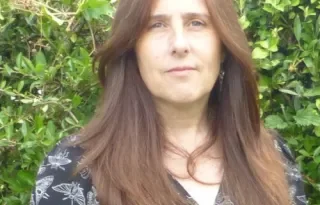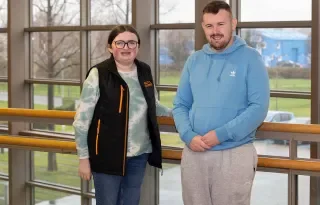Dundalk Institute of Technology Hosts Local Authority Waters Programme (LAWPRO) National Conference on Nature-based Solutions
A two-day national event, focused on nature-based solutions was recently held at Dundalk Institute of Technology (DkIT). Over 175 delegates attended the two-day event titled Nature-based Solutions Conference – To Protect and Restore Urban, Rural, Coastal and Riverine Environments. Delegates were welcomed by President of DkIT, Dr. Diarmuid O’Callaghan and the conference was formally opened by Minister of State for Nature, Heritage and Biodiversity, Christopher O’Sullivan T.D. and hosted by the Local Authority Waters Programme (LAWPRO).
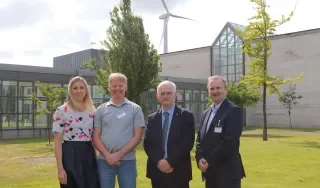
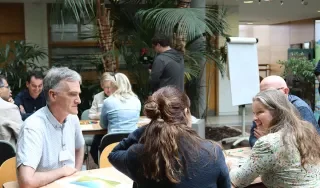
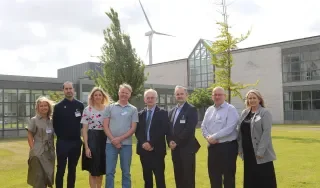
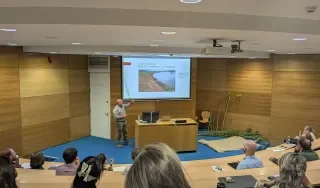
Speaking ahead of the conference, Minister O’Sullivan said:
“Nature-based Solutions have a large role to play in protecting water quality by helping to create climate resilience and improving biodiversity. We need more solutions to environmental issues that work with nature rather than trying to control it. The International Union for Conservation of Nature estimate that one third of climate mitigation needed to meet the goals of the Paris Agreement, can be provided by Nature-based Solutions. This conference will bring together experts who can share their experience and ideas for how to integrate and mainstream Nature-based Solutions into water management practice.”
One of the valuable partners involved in the conference was The Centre for Freshwater & Environmental Studies (CFES) at DkIT. CFES is renowned for its interdisciplinary research into water quality, and aquatic ecosystems, making DkIT an ideal setting for this forward-thinking national event.
Dr. Suzanne Linnane, Director of the Centre for Freshwater and Environmental Studies (CFES) at Dundalk Institute of Technology, added:
“As a research centre committed to the sustainable management of our freshwater and environmental resources, CFES is proud to support this national conference. Nature-based Solutions are a vital part of the toolkit needed to address the urgent challenges of climate change, water quality and biodiversity loss. Through research, collaboration and education, we aim to ensure that practical, science-based solutions are accessible to communities, practitioners and policymakers alike.”
The event was of particular interest to those wanting to understand and incorporate Nature-based Solutions (NbS) into urban, rural, and coastal environments. Nature-based Solutions use natural systems such as soil, plants and landscape features to manage climate risks and environmental challenges. These methods reduce flooding and drought impacts, improve water quality and support biodiversity.
Nature-based Solutions can provide:
- Control and management of surface water run-off (climate mitigation),
- Improved water quality via natural filtration,
- Enhanced biodiversity and amenity in urban and public spaces.
This event was the second national Nature-based Solutions conference and focused on technologies and strategies suitable for Ireland. Day one featured a number of expert presentations and panels, focused on the use and impact of nature-based solutions in a variety of settings; Urban, Rural, Riverine, Coastal and the Private Sector. Drawing on expertise from Ireland and abroad, talks focused on topics such as, ‘Nature-based Solutions, the ugly, the bad and the good’, ‘Increasing the Biodiversity Ambition within Nature-based Solutions’ and ‘Advancing Nature-based Solutions for People and the Planet.’
The second day focused on Nature-based Solutions in action and offered a series of practical masterclass workshops to attendees covering urban Nature-based Solutions, river restoration and coastal restoration.
Commenting on the importance of Nature-based Solutions, Dr. Fran Igoe, Regional Coordinator with LAWPRO, said:
“Although the application of Nature-based Solutions is something new to many people in Ireland, our ancestors have been using these techniques for centuries. This conference allowed participants to explore how we can expand and mainstream such approaches to meet today’s environmental challenges.”
Find out more about The Centre for Freshwater and Environmental Studies
